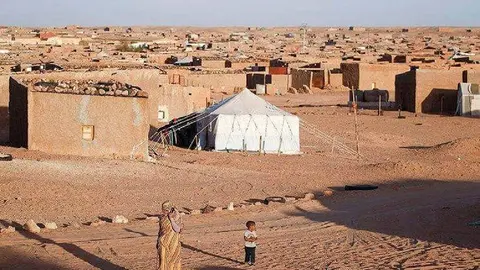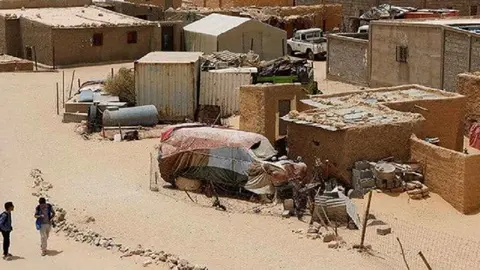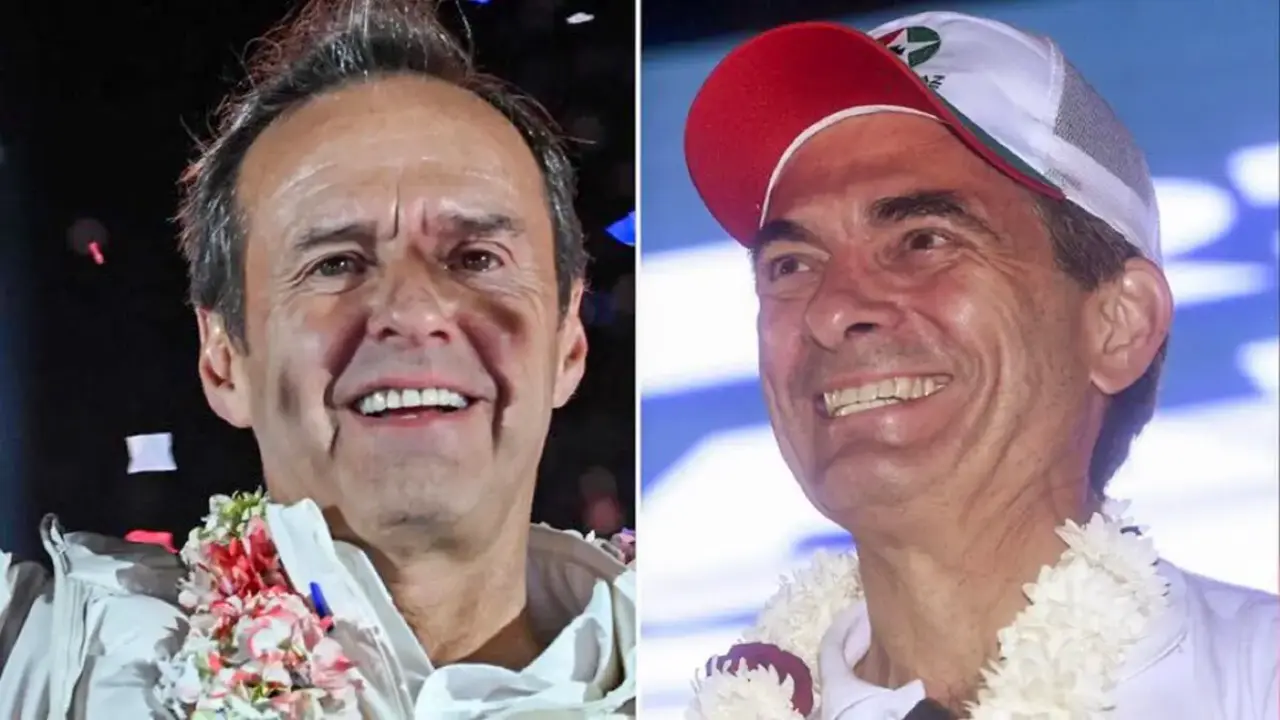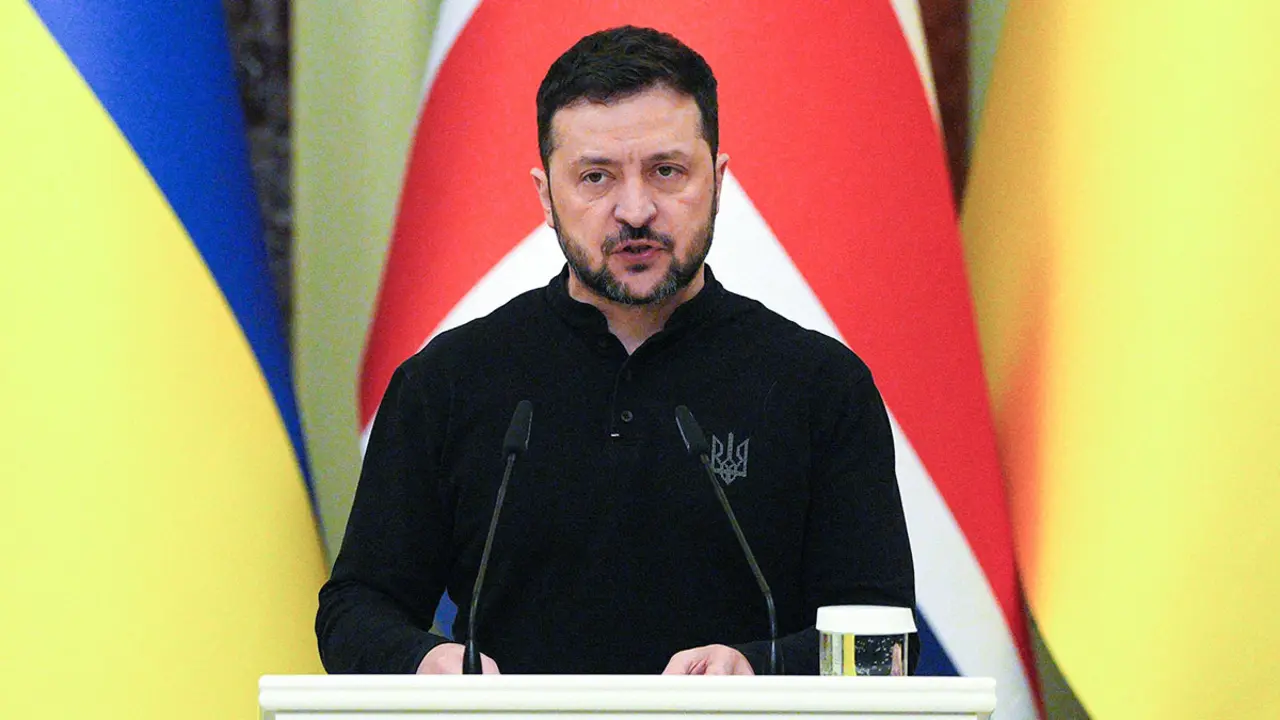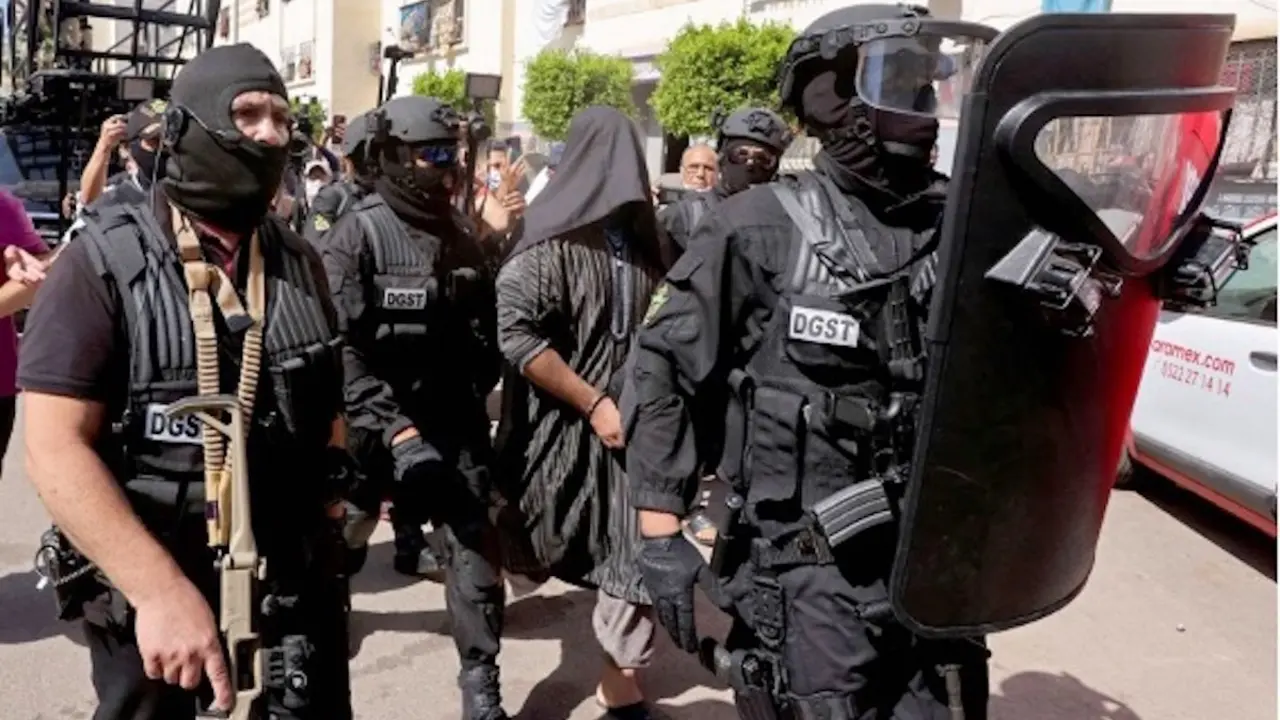Coalition of Sahrawi NGOs warns of human rights situation in Tindouf camps

The coalition of Saharawi NGOs formed by Africa Watch, Human Rights Defenders and the International Network for Human Rights and Development (RIDHOD) presented its new report sent to the UN Special Rapporteur, Mary Lawlor, on the occasion of her visit to the State of Algeria from 26 November to 5 December. The report aims to shed light on the situation of Saharawi human rights defenders in the Tindouf camps.
The coalition of Sahrawi NGOs, formed by Africa Watch, Defenders for Human Rights, and the International Network for Human Rights and Development (RIDHOD), is concerned with enhancing awareness of the culture of human rights and raising the capabilities of human rights defenders in the North Africa and Middle East regions, monitoring and tracking democratic paths in the region, as well as monitoring and documenting violations and restrictions which affects human rights defenders and civil actors in general, and submits reports and organizes discussion panels, statements and conferences in this regard.
The coalition also intends to adopt mediation methods to enhance the protection of human rights defenders while they are subjected to arrest, repression, or other acts harmful to the full exercise of their duties.
The coalition interacts with the United Nations mechanisms during the review of reports of countries in the region or visits by the special procedures of the Human Rights Council, to provide them with monitored and documented information in accordance with the relevant rules of international human rights law and international humanitarian law.
In response to the invitation of the mandate of the Special Rapporteur on human rights defenders, on the occasion of her visit to the State of Algeria in the period between 26 November and 6 December 2023, to provide statements and information related to the main national laws and policies in force in the Republic of Algeria, which support or restrict the work of human rights defenders and civil society in general, as well as exploring the limits of the expansion and contraction of civil space in the country, and highlighting the main challenges, obstacles or restrictions that human rights defenders face while carrying out their work.
Interacting with the call of the Special Rapporteur on human rights defenders, to support the fulfillment of her obligations during the visit to the State of Algeria, requires that we, as civil society organizations, exercise great accuracy, integrity, and impartiality in conveying reliable information, analyzing contexts, and describing state practices related to the work of human rights defenders, to make a serious contribution. In protecting and promoting human rights in the region and disseminating knowledge of them widely.

1. Conflict-related challenges
Since the establishment of camps to house Sahrawi people in 1975, on lands under Algerian sovereignty, these people have not been counted and registered by the United Nations High Commissioner for Refugees, to determine their legal status and ensure their enjoyment of the rights guaranteed by the 1951 Convention relating to the Status of Refugees and its Additional Protocol of 1967.
The Sahrawis in the camps are deprived of the legal status of refugees and the right to life, physical safety, education, health, freedom of opinion and expression, the right to food and freedom of movement.
This broad spectrum of rights is affected by systematic prevention by the various authorities and security agencies, whether it is the Algerian authorities or the Polisario organization.
Based on the fragility of the legal status of the Sahrawis living in the Tindouf camps, due to the refusal of the Algerian authorities to allow the census and registration of the Sahrawis living in the camps and to determine the reasons and motives for their movement to Algerian territory, whether the matter is related to mass displacement, personal desire, repression, or other reasons requiring asylum, as well as knowing their humanitarian needs to be included in appeals for the humanitarian response to refugees, as well as in the programs of the High Commissioner, the World Food Program and other international donors.
The work of human rights defenders is almost impossible given the blurring of the scene and the difficulty of the humanitarian, political and security context in those camps.
The Coalition would like to remind the Special Rapporteur that the management of the camps’ security, judicial, military and other activities has been delegated to a military organization called “Polisario”, since the establishment of the camps, and the country hosting the camps has become de facto irresponsible for what happens to those camps for five decades, in violation of its international obligations under international law, it is obligated to protect all persons subject to its legal and judicial jurisdiction, including Sahrawi persons residing in the Tindouf camps.
In its recommendation, the Human Rights Committee recommended to the State of Algeria that it should abolish this mandate, which is in violation of international law, and work to protect all persons subject to its jurisdiction, including Sahrawis living in camps, and then work to ensure their security and access to the state’s national remedies, in cases where they are alleged to have been subjected to violations of their rights guaranteed under the provisions of the International Covenant on Civil and Political Rights.
Given the absence of any international monitoring of the situation inside the Sahrawi camps, it is prohibited, according to a local law that serves as a constitution for the organization of the Polisario, any formation of political, civil and cultural associations until the end of the conflict over the territory, which makes it impossible to carry out civil activities of any kind, whether civil or political, that not gained approval from Polisario officials, or not affiliated with the organization's parallel branches, and any violation of these orders exposes violators to serious violations ranging from extrajudicial killing, forced disappearance, or exposure to excessive torture, sometimes leading to death.
The coalition of non-governmental organizations works to monitor, protect, and promote human rights in the Sahrawi camps in the Tindouf region in southwestern Algeria, based on the belief of the components of the coalition that there is an urgent need to intensify work in this region to provide reliable and honest information on the state of rights and freedoms, and the spread of many unfounded allegations, which, in many cases, contributes to confusing all those involved in the field of human rights, regionally and internationally.
In connection with the visit of the Special Rapporteur on human rights defenders to the State of Algeria, to evaluate the progress achieved in the legislative and policy field as well as best practices that would improve the working conditions of human rights defenders, in addition to identifying the challenges and problems that human rights defenders face while performing their work.
This paper focuses on the working conditions of human rights defenders in the Tindouf camps, as well as the contexts and obstacles that prevent Sahrawi defenders from enjoying their rights to expression, peaceful assembly, education, health and other rights, in addition to the challenges associated with the conflict over Western Sahara and its outcomes.

2. Freedom of opinion, expression, and association in Algeria and the Sahrawi camps in Tindouf
Although the State of Algeria has accepted several recommendations 1 related to the situation of human rights defenders, they continue to suffer from severe restrictions on carrying out their activities2. The Law No. 12-06 imposes strict restrictions on the formation of associations and their receipt of foreign funding. National laws prohibit unlicensed peaceful demonstrations and gatherings if they are considered, according to the authorities’ discretion, likely to disturb public tranquility3.
The law stipulates prison sentences for anyone who calls for or participates in gatherings that disturb public tranquility4. The lack of independence of the judiciary5 contributes to perpetuating the state of siege that activists and human rights defenders are experiencing, as evidenced by dozens of rulings issued by the courts against human rights defenders, and activists6, during the period from January 2014, until the end of 2016, on charges related to disturbing public tranquility, or influencing judicial rulings, as happened in the case of Belkacem Khencha and 7 other members of the National Committee for Defending the Rights of the Unemployed who were arrested on January 28, 2015, or on charges of insulting state institutions or defaming and insulting the president7.
The Tindouf camps in southwestern Algeria was not an exception in the Algerian context. The Polisario organization, with full authorization from the authorities of the host country, imposed many obstacles and repressive measures, such as arbitrary detention, torture8, enforced disappearance9, deportation from camps, and other forms of repression that the Polisario continues to face all human rights defenders who hold opinions contrary to its theses, especially the opinions of those who support formulas contrary to what the organization proposes regarding the conflict over Western Sahara10.
The coalition notes the impossibility of establishing associations and peaceful demonstrations in the Tindouf camps in Algeria, as the Polisario organization only allows the establishment of organizations parallel to it and guarantees the right of movement and travel abroad only to activists who promote its theses. On the other hand, other human rights defenders are exposed to restrictions related to their right to freedom of movement, as the Algerian authorities refuse to grant residents of camps in the camps their right to leave Algeria, except after ensuring that they have obtained a permit to leave from the Polisario organization, and upon their return, they are subjected to interrogation and temporary confiscation of travel documents by Algerian police, which prevents many people from returning to their countries of usual residence outside the camps.
The Algerian legislator still has not introduced a law guaranteeing the protection of human rights defenders while performing their work, which makes them vulnerable to arrest, torture, and imprisonment, simply for expressing their opinions and participating in forms of protest in various parts of the country, including the defenders in the Tindouf camps, who suffer doubly from the grip of the Polisario officials, and they cannot resort to the Algerian judiciary, with the justification that the host country delegates its jurisdiction in the camps to an armed organization, in clear violation of the provisions and norms of international law.
Therefore, human rights defenders who do not intersect with the Polisario organization in its policies inside and outside the camps suffer systematic restrictions on their activities, and are subjected to abuse in most cases if they criticize the humanitarian conditions in the camps or promote a point of view that conflicts with the Polisario organization’s project of secession from the Kingdom of Morocco.
The working conditions of Sahrawi human rights defenders are becoming increasingly bleak, due to the state hosting the camps disavowing its international responsibilities in relation to protecting these displaced people for more than 47 years, leaving them at the mercy of a non-governmental actor that possesses weapons and means of control and coercion, outside any significant international or UN monitoring11.
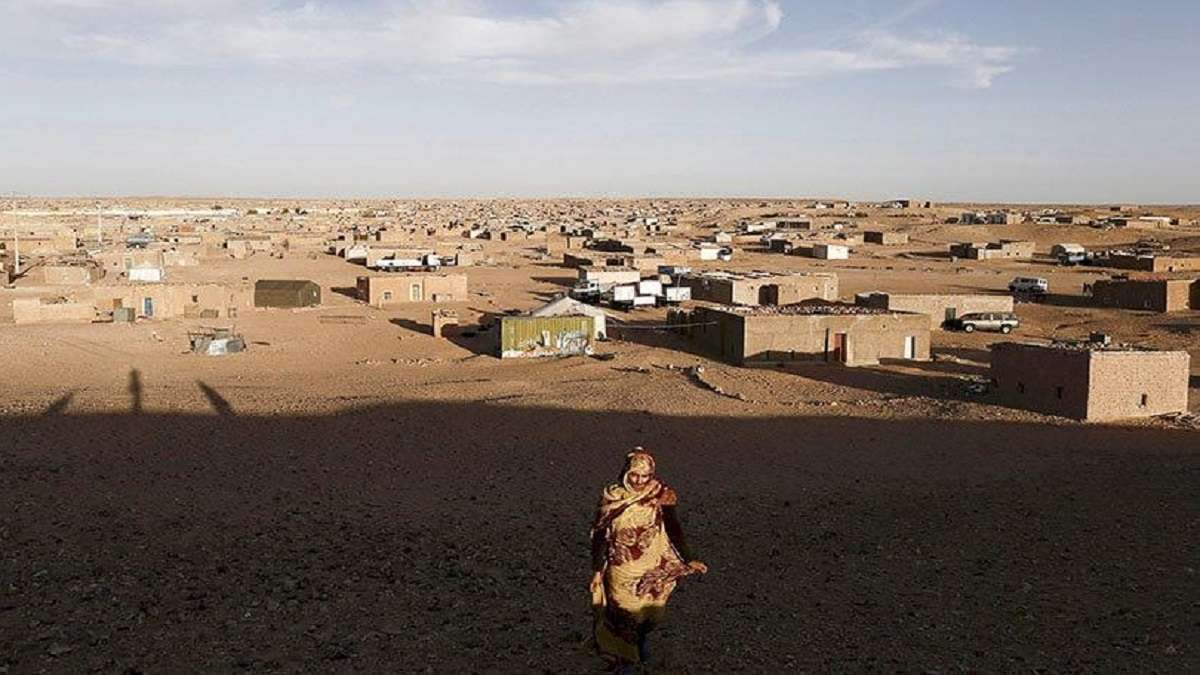
3. Challenges faced by human rights defenders
Among the most prominent challenges facing human rights defenders in Algeria and the Tindouf camps is the lack of a suitable and safe environment for human rights defenders and civil society organizations to work. Human rights defenders continue to be subjected to kidnapping, arrest and torture in police stations and irregular detention centers in the Tindouf camps.
Perhaps the local defender community does not have a legal framework that guarantees their protection while performing their work, and there are harsh laws and practices regarding the work of defenders, especially the defamation law and the executive order of the Peace and Reconciliation Charter, which prevents debate and discussion of grave violations committed by state security bodies during the 1990s, as well as the lack of empowerment to defenders, victims and their families are prevented from accessing the judiciary to prevent the continuation of the policy of impunity, which establishes an unsafe environment for the work of human rights defenders, based on the Algerian authorities and Polisario security personnel resorting to harsher repressive methods against civil actors in order to silence their voices and limit their areas of activity and influence within their society.
The practice in Algeria is characterized by judicial pressure on human rights defenders, journalists, and activists, by issuing unfair sentences against them. For example, human rights defenders in the Tindouf camps are tried before a military body or are deported from the camps, simply because they disagree with the general editorial line of the Polisario organization or on their expression of support for positions that are not in line with the Polisario’s vision on the Western Sahara conflict.
4. Special cases for human rights defenders
Sahrawi women activists12 residing in Spain were prevented from freedom of movement and detained in Tindouf camps against their will. They were denied freedom of movement outside the camps and were not allowed to return to their countries of residence, after a visit to their biological families in the Tindouf camps. This is due to the State of Algeria delegating its jurisdiction over the camps established on Algerian soil to the armed Polisario organization, in violation of the relevant rules of international law.
In continuation of its systematic repressive practices, the Polisario arrested the sahrawi journalist and blogger Mahmoud Zidane for his defense of human rights for the benefit of the Sahrawis living in the Tindouf camps and his criticism of the systematic policy followed by the state of Algeria and the Polisario organization in relation to suppressing the voices of human rights defenders and activists who seek to communicate with United Nations mechanisms, and as a result The sahrawi activist was subjected to a campaign of stigma and betrayal, and he was called a spy for foreign parties, in addition to Polisario officials contacting the aforementioned blogger to deny what was stated in the statement.
In the face of the international community’s lack of action regarding the campaigns of kidnapping, torture, and the stigma of treason practiced against opponents and human rights defenders who do not comply with the policies of the Polisario organization in the camps or in its relations with the host country, especially with regard to the suppression of the freedoms of demonstration, freedom of expression, and liberty of movement of activists, the Polisario organization, with the authorization of the Algerian authorities, kidnapped human rights defenders, namely Mahmoud Zidane, a blogger and journalist working to protect the rights of refugees, Moulay Babouzid, an activist who belongs to the Civil Initiative for Change, and the human rights defender, Mr. Fadel Breika El Mahdi, a member of the Civil Initiative for Change, for their opposition to the Polisario’s tendencies and their insistence on delivering their voices for UNHCR and the United Nations human rights mechanisms to expose the grave violations committed in the camps since their establishment.
It should be noted that units of the Algerian army committed extrajudicial killings of Sahrawi activists working in subsistence trade activities by searching for gold in the areas of the camps, and The Polisario arrested and subjected to torture many Sahrawi people residing in the camps, the last of whom was Mr. Mohamed Salem Ould Treyih, as a result of calling his companions stopped the smuggling of humanitarian aid allocated to the camps, and stopped a large truck of gasoline that was destined for sale in the Mauritanian markets.
5. Implementation of the Declaration
The State of Algeria has not taken any measures regarding the implementation of the requirements of the Declaration on the Right and Responsibility of Individuals, Groups and Organs of Society to Promote and Protect Human Rights and Fundamental Freedoms, which are universally recognized as a special international instrument to protect the right to defend human rights.
It is clear through practice that the State does not guarantee the rights stipulated in the Declaration, which include freedom of association, freedom of peaceful assembly, freedom of opinion and expression, the right to obtain information, provide legal assistance, and discuss and develop human rights issues in general. This makes it impossible to create a suitable environment that enables human rights defenders to carry out their work.
The State has made little efforts to enact laws appropriate to its international obligations in relation to the Declaration on the Protection of Human Rights Defenders. Rather, it has worked to issue laws that limit the space available for civil society in general and human rights defenders, in violation of the rules of international human rights law and the requirements of the Declaration.
The laws regulating the work of defenders, such as Law No. 12-06 regarding associations and Order No. 06-01 implementing the Charter for Peace and Reconciliation and the Criminal Code, are all legislation that came to justify human rights violations and to suppress the work of human rights defenders and silence them, in addition to the challenges that human rights defenders face during practice. It has been proven that the Algerian authorities do not pay attention to civil society, and work to demean the role of human rights defenders.
6. Recommendations
The countries participating in the process of reviewing the State of Algeria before the universal periodic review mechanism made a set of recommendations related to human rights defenders and concerned with reforming legislation with the aim of not obstructing the work of non-governmental organizations and human rights defenders, especially the rights related to freedom of the press, amending the law related to defamation, and preventing judicial interference in order to restrict the work of human rights defenders and journalists, to amend the criminal law that criminalizes freedom of expression and opinion online and in various social media, and to work to create a suitable and safe environment for civil society and human rights defenders.
It is noted that the State of Algeria has not yet begun to implement these recommendations, despite accepting many of them, including recommendations related to the preservation of human rights in the Tindouf camps located on its territory and within its jurisdiction, which it has delegated to the Polisario armed organization since 1975.
7. Best practices and commitments
On the occasion of the twenty-fifth anniversary of the United Nations Declaration on Human Rights Defenders, the coalition seeks to organize intensive training courses known as the Declaration on Human Rights Defenders, publish it, and introduce the rights contained therein.
Based on the need of our societies for what human rights defenders do, we would like to draw the attention of the Special Rapporteur on the protection of human rights defenders, to encourage the State of Algeria to deal positively with the issues of human rights defenders, and to improve legislation regulating human rights, such as the press law and the defamation law and criminal law, in order to create a safe and sound environment that enables defenders to carry out their work properly, throughout the entire Algerian national territory, including the Sahrawi camps in Tindouf.
REFERENCES
1 Recommendations No. 80/86/118/123/134/135/137, from the report of the Working Group on the Universal Periodic Review, at its fourth session, Review of the State of Algeria. https://documents-dds-ny.un.org/doc/UNDOC/GEN/G22/607/78/PDF/G2260778.pdf?OpenElement
2 The Algerian government has not yet canceled the state of emergency imposed two decades ago. It is a law that abolishes the guarantee of some rights, as it gives a strong justification for the authorities to prevent forums, seminars, and all forms of protest that do not comply with the country’s general policy, and enables the Algerian security services to arrest people without charges. Suspected Islamists are among the most common victims of this law, and it often constitutes an obstacle and prevents human rights defenders from carrying out their work, by preventing or arresting them.
3 It is a loose expression that enables the authorities to silence all opposing voices, given the difficulty of defining the concept of public tranquility, as stated in Article 97 of the Penal Code.
4 Articles 98 and 100
5 The European Parliament noted increasing government harassment against human rights activists and expressed concern about the misuse of the judiciary as a tool to stifle dissent in the country.
https://www.hrw.org/ar/news/2016/06/07/290733
6 Such as the case of journalist and activist Hassan Bouras, Al-Taher Jahish, activist Okasha Mahdah, and the group consisting of Dahmane Zenani, 44 years old, Dahman Kirami, 22 years old, Abdel Ali Gholam, 34 years old, Muhammad Bukhari, 32 years old, Ahmed Ben Zamit, 32 years old, and Fathi Hami, 32 years old, and Embarak Ramadani, 53 years old, on charges of disobedience, participating in an unarmed gathering, and inciting others to join unarmed gatherings, during protest demonstrations in 2014 and 2015.
7 This also happened in the case of Hassan Bouras, who was convicted to imprisonment, and Zoulikha Belarbi, who was convicted to a fine because of a cartoon on her Facebook page.
8 The case of Allal Eddaf, an artist concerned with issues of change, democracy and justice in the Tindouf camps. He was subjected to arrest and torture, repeatedly, and survived an assassination attempt after his sit-in in front of the the headquarters of the UNHCR in the camps. He was subjected to house arrest, prevented from organizing any artistic activity, defamed, and labeled a traitor.
9 The case of Ahmed Mahmoud Bareh, aka Khalil Ahmed. He is one of the founders and a member of the leadership of the Polisario Front organization. He was kidnapped on June 6, 2009. His family believes that the reason for his kidnapping was due to his disagreement with the organization’s officials regarding the file of gross human rights violations in the camps.
10 The case of Mustafa Salma Ould Sidi Mouloud, who was kidnapped on September 21, 2010, from the Lamhirez region, southern Algeria, after announcing his support for the proposal submitted by the Kingdom of Morocco to grant autonomy to Western Sahara. He is still a refugee in Mauritania, deprived of seeing his family in the Tindouf camps, because his positions opposing the proposal of the Polisario organization.
11 It should be noted that the camps are located in southwestern Algeria, and are subject to its legal and judicial jurisdiction. However, the host country does not, in any way, allow visits to the camps within the framework of visits by special procedures mechanisms to the country, nor to international organizations working in the field of human rights, if they declare their desire to monitor and document human rights in the camps.
The Working Group on Enforced Disappearances and the Working Group on Arbitrary Detention have been waiting for approval to visit the country for years, for fear of provoking violations directly related to the camps, or revealing flagrant violations of international law on the occasion of the visit.
12 The matter concerns, but is not limited to: Maalouma Morales, Najiba Mohamed Belkacem, Al-Daraja Mbarak Salma, Mahjouba Mohamed Hamdi Al-Daf, Salka Abaida, Al-Kouria Badbad Al-Hafed, and others whose identities the coalition was not able to confirm, with the justification of their immoral character, after the same organization put them up for adoption at an early age to Spanish families.
http://www.elmundo.es/sociedad/2016/05/20/573e003ce5fdea35468b458c.html
https://www.hrw.org/es/news/2016/03/04/sahara-occidental-retienen-mujeres-en-campamentos-de-refugiados

